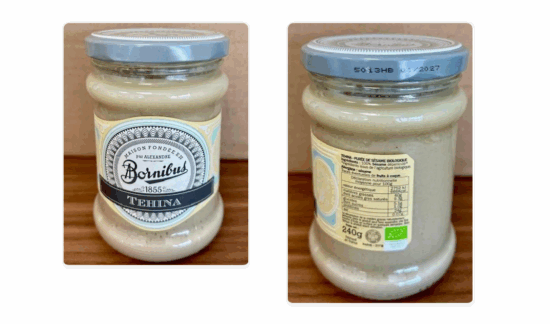Canadian food safety officials have announced a a recall of tehina because it has the potential to be contaminated with Salmonella.
The Bornibus brand “tehina” was sold at The Market Garden, 810 Catherine St., Victoria, British Columbia. It is sold in jars with a weight of 240 grams, a UPC number of 3592860018907 and codes 5013HB 01/2027.
The recall is in response to a recall in another country, according to the Canadian Food Inspection Agency. As of the posting of the recall notice, there had been no reports of confirmed illnesses in Canada associated with consumption of the product.
The food inspection agency is conducting a food safety investigation that may lead to additional recalls.
About Salmonella infections
Food contaminated with Salmonella bacteria does not usually look, smell, or taste spoiled. Anyone can become sick with a Salmonella infection. Infants, children, seniors, and people with weakened immune systems are at higher risk of serious illness because their immune systems are fragile, according to the CDC.
Anyone who has eaten any of the recalled product and developed symptoms of Salmonella infection should seek medical attention. Sick people should tell their doctors about the possible exposure to Salmonella bacteria because special tests are necessary to diagnose salmonellosis. Salmonella infection symptoms can mimic other illnesses, frequently leading to misdiagnosis.
Symptoms of Salmonella infection can include diarrhea, abdominal cramps, and fever within 12 to 72 hours after eating contaminated food. Otherwise, healthy adults are usually sick for four to seven days. In some cases, however, diarrhea may be so severe that patients require hospitalization.
Older adults, children, pregnant women, and people with weakened immune systems, such as cancer patients, are more likely to develop a severe illness and serious, sometimes life-threatening conditions.
Some people get infected without getting sick or showing any symptoms. However, they may still spread the infections to others.
(To sign up for a free subscription to Food Safety News, click here)



